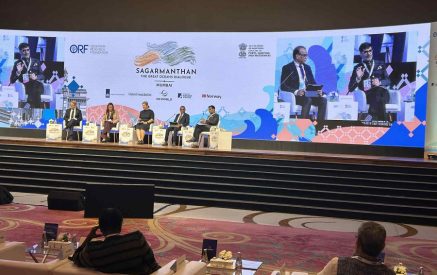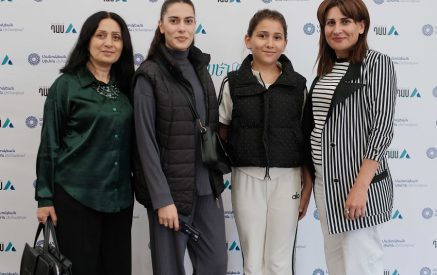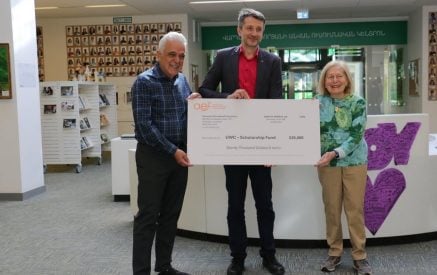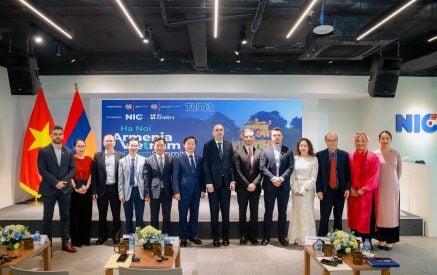BELLINGHAM, Washington, USA — An innovative program that trains physics educators in a hands-on approach to teaching optics and photonics will present its next workshop in November in Armenia. Volunteer instructors with Active Learning in Optics and Photonics (ALOP) will gather from around the world 18-23 November at the Armenian State Pedagogical University in Yerevan for the training session. ALOP is sponsored by UNESCO, SPIE, the international society for optics and photonics, and the ICTP (Abdus Salam International Centre for Theoretical Physics).
Workshop facilitators in Yerevan will be professors David Sokoloff (University of Oregon, USA), Zohra Ben Lakhdar (UNESCO-L’Oreal Laureate, University of Tunis, Tunisia), and Alexander Mazzolini (Swinburne University of Technology, Australia), assisted by Joseph Niemela of ICTP and Juste Jean-Paul Ngome Abiaga of UNESCO.
Professors Souad Lahmar (University of Tunis, Tunisia), Vengu Lakshminarayanan (University of Waterloo, Canada), and Ivan Culaba (Ateneo de Manila University, Philippines) also are on the ALOP facilitator team.
Modules cover topics such as lenses, optics of the eye, interference, diffraction, photonics, optical communications, and atmospheric optics. Workshops utilize materials and supplies that can be obtained locally and are low in cost, to help participating educators easily incorporate and sustain the lessons within their own STEM (science, technology engineering, and mathematics) curricula.
Among the challenges that local participants face are classes that are too large, lack of adequate equipment, and set curricula that leave little room for innovative teaching, organizers report — in one extreme case, a participant represented a school in an area with no electric power.
Planning is underway to implement workshops in Lebanon, Chad and Ghana in 2013.
Recent workshops have been hosted by:
- Kigali Institute of Science and Technology and the National University of Rwanda, in November 2011, with 41 participants from Burundi, Uganda, Democratic Republic of Congo, and Rwanda. Local organizer was Professor Karemera Marembo Claver of the National University of Rwanda, along with co-organizer by Fedele Ndahayo, Dean of Sciences at the university.
- International Center of Kathmandu University, Dhulikhel, Nepal, in December 2011, with 27 participants from throughout Nepal. Organized locally by Professor Deepak Subedi (Kathmandu University), assisted by Professor Raju Khanal, the workshop had the additional goal of training a group of Nepalese facilitators to present local workshops and thereby train more local facilitators.
- Centre National de Formation des Formateurs en Education, Carthage, Tunisia, in March 2012, with 30 participants from Algeria, Cameroun, Morocco, Central Africa, Chad, and Tunisia. The workshop was a follow-up to a past year’s event, enabling participants to develop more independence in setting up the learning modules and to gain deeper knowledge in physics.
The National Academies of the USA joined program sponsors in providing funds for the 2011 workshops in Nepal and Rwanda.
In 2011, the ALOP team was awarded the SPIE Educator Award in recognition of the team’s achievements in bringing basic optics and photonics training to teachers in the developing world. See more information at www.spie.org/x45049.xml.
SPIE is the international society for optics and photonics, a not-for-profit organization founded in 1955 to advance light-based technologies. The Society serves nearly 225,000 constituents from approximately 150 countries, offering conferences, continuing education, books, journals, and a digital library in support of interdisciplinary information exchange, professional growth, and patent precedent. SPIE provided over $2.7 million in support of education and outreach programs in 2011.

























































